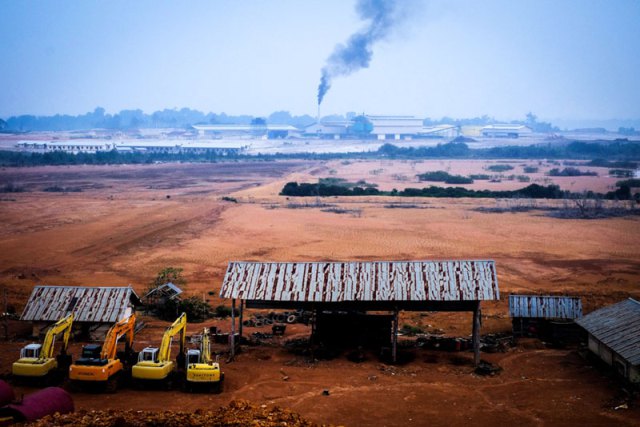Plantations International Information
By Steven Lawry, originally published at CIFOR’s Forests News

Almost Twenty Years earlier, in 1996, the Namibian government granted rights to wild animals– elephants, black rhinocerous, lion and also lots of species of antelope– to recently developed neighborhood conservancies. Now, Namibia has 82 of these area conservancies, covering 20 percent of its region. These neighborhood conservancies have created benefit a number of thousand regional homeowners and profits from traveler lodges that goes to constructing institutions and also facilities. The environment is making out better as well, as individuals have quit their livestock in favor of wild animals that are much better matched to Namibia’s semi-arid setting.
Something similar happened in Guatemala in 1990, when the federal government created the Mayan Biosphere Reserve, and alloted about 40 percent of the reserve as area forestry concessions. The giving ins have created significant earnings, primarily with the sales of lasting high-value mahogany and also teak wood. Prices of deforestation in these concessions have decreased considerably.
These are two instances of initiatives that sought to create new commons establishments and also ventures– simply put, they sought to link locally made goods and also solutions to high-value markets.
As well as in both cases, neighborhood homeowners have actually gained substantial social, financial and ecological advantages.
Relevant session: Commons Tenure for a Common Future, 2015 Worldwide Landscapes Forum on Saturday 5 December.
COLONIAL TRADITION
These situations exemplify the gains that some neighborhoods depending on public woodlands as well as other all-natural sources in the developing world have made over the previous 20 years in reclaiming a higher share of the usage, management as well as various other civil liberties to those woodlands– areas that, during and also after the colonial age, were held and also administered by federal government companies, frequently to the impairment of these neighborhoods.
Creating country federal governments tended to preserve the colonial design of state ownership even after their countries gained independence. Where state regulation of hardwood extraction and advancement were weak, neighborhood individuals birthed the ecological and social expenses of land and watershed destruction. Yet they had little or no power to shield their local land as well as forests from encroachment by outsiders. Local rules for designating resource civil liberties shed force, and local institutional storage capacity for governing resource use typically perished.
State rule of forest use can likewise be threatening and punishing. Local people can usually use resources only if they handled to gain permission or paid costs. In some locations, traditional usages of woodlands, such as subsistence hunting and also compilation of non-timber woodland products, were outlawed. In several Sahelian West African nations, farmers needed to protect licenses to chop down trees they had planted on their very own ranches. The result: fewer trees grown.
In general, then, the development made over the past Two Decade demonstrates how period protection as well as clarification of rights can produce conditions for better administration of resources, for drawing in outdoors financial investment, and also for the more fair sharing of commons.
FUTURE GENERATION
Yet we have currently moved right into what may be called the “future generation” of difficulties in the management of typical home resources: Communities have recently reinforced source legal rights– but then just what?
Since despite the gains, local source governance setups have the tendency to be vulnerable, and local ventures have a tendency to be weak. Just what’s even more, development in the devolution of legal rights has actually drawn attention to the relentless hardship in numerous communities reliant such commonly made use of resources as pastures, fisheries as well as water, wild animals and also woodlands.
So at the top of the checklist of next-generation difficulties is this: The best ways to guarantee that neighborhoods with freshly strengthened source civil liberties could construct solid regional economies based upon the lasting use of local natural sources.
For a start, this will certainly call for brand-new forms of regional administration setups and regional ventures that are capable not just of bringing high-value neighborhood products and also solutions to markets, however of doing this in means that provide fair benefits to neighborhood right holders. Middlemans– occasionally NGOs– can be essential to developing regional commercial building acumen and brokering manage outdoors organizations and investors– which can also build trust amongst events not accustomed to interacting.
Likewise crucial is an understanding of how people’s capability to take part in commons business could differ baseding on their age, education, sex, health as well as various other social and demographic elements. An appreciation of these differences, and also exactly how they materialize in power dynamics, could assist build safeguards versus elite capture of commons enterprises and also style benefit-sharing setups that ensure all ideal owners get a reasonable share of the benefits of commons ownership.
This future generation of obstacles is, fairly clearly, no much less daunting than that of earlier eras.
Checking out remedies belongs to the objective of the panel conversation on “Commons Tenure for an Usual Future,” at the 2015 International Landscapes Online forum on Saturday 5 December. By recognizing these concerns and also diving deeply into them, we could aid usual period cause common advantages.
Plantations International
